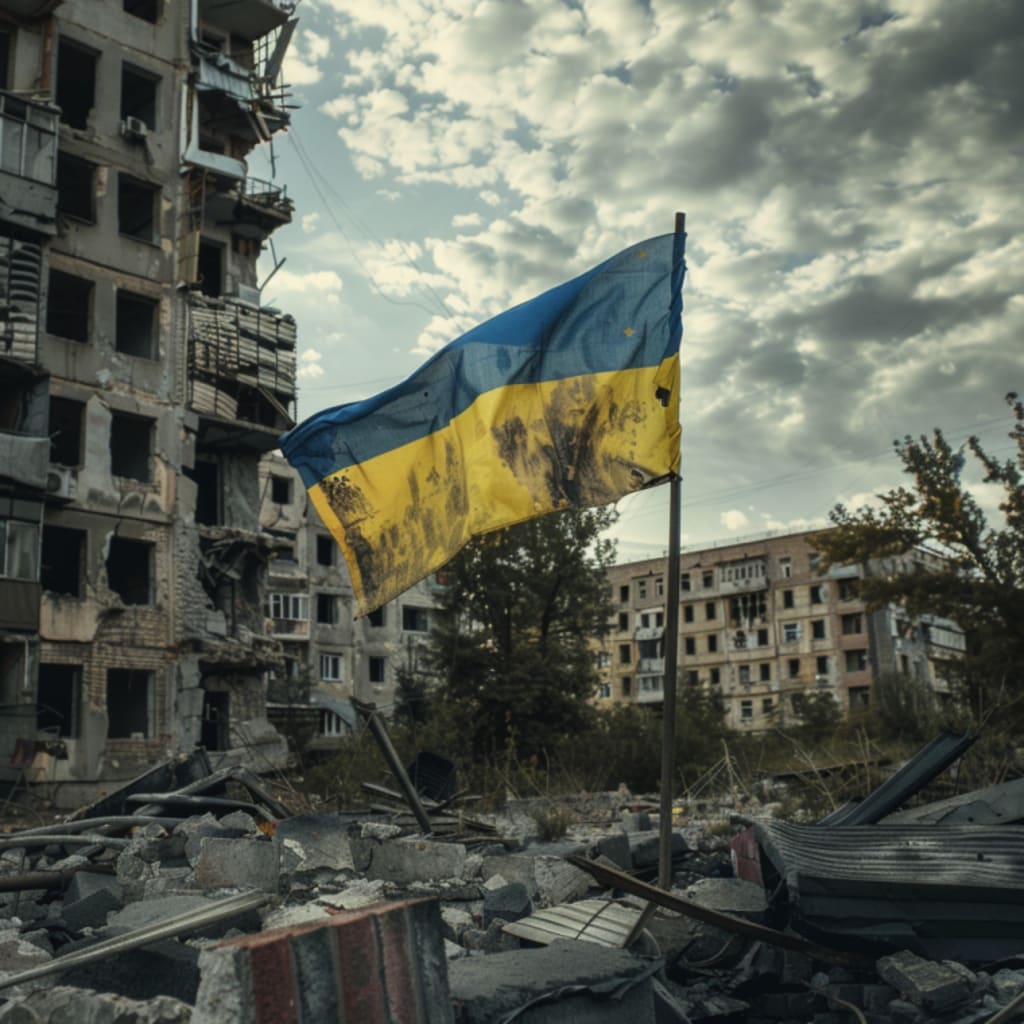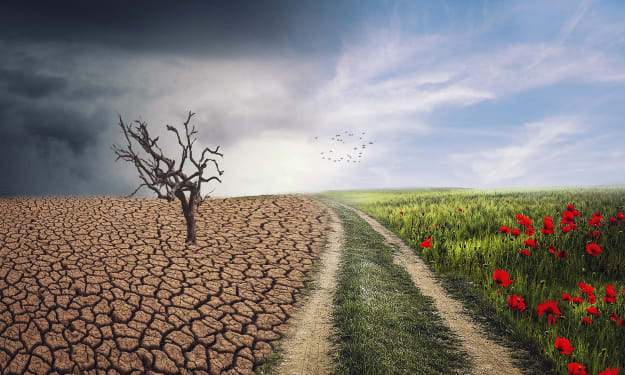The Call to Action: Why the World Has to Stand by Ukraine
World Peace

At the very core of Eastern Europe, a struggle rages that transcends across borders and ideologies. Ukraine is an independent country with an aspiration to be democratic, severely under attack and harrowing intimidation from its formidable neighbor, Russia. This conflict does not concern municipal disputes or political differences; rather, it is a frontline struggle for freedom, sovereignty, and global stability. With the world as witness, the stakes are quite plain: if we allow Ukraine to fall, Russia's ambitions will not end there. It will have far-reaching repercussions, threatening the peace and security of the entire world.
The Roots of the Conflict
First of all, to understand why it is important to support Ukraine, one needs to know the roots of the conflict. Since the breakup of the Soviet Union in 1991, Ukraine has been on the divergent path of democracy and closer integration with Western Europe, very much to Russia's chagrin. This was resoundingly illustrated by the annexation of Crimea in 2014 and by war in the Donbas region, which rages on.
It is not only the fact that Russia's actions are to regain lost land but part of an even greater scheme: to undermine democratic movements and reassert authoritarianism. In many ways, Ukraine's struggle mirrors this global contest between democracy and autocracy, between freedom and oppression. If Ukraine is to be supported, here comes the strong message from the international world: that the world is not going to stand by as a sovereign nation is subjugated.
The Consequences of Inaction
The consequences could be grim if the world turns a blind eye to events in Ukraine. If Russia is successful over Ukraine, the implications are clear: that it will become further emboldened to pursue further territorial expansion. For countries in Eastern Europe, especially those with a Russian-speaking population, the next on the list could well be any of them. The Baltic states—Estonia, Latvia, and Lithuania—are all members of NATO and more exposed than most. In the event of a successful Russian campaign in Ukraine, the attempts to destabilize the former countries may well come forth with renewed vigor, testing the very foundations of the NATO alliance.
Moreover, such inaction would be fraught with dangerous precedents for international relations. That would mean military aggression can thus be a legitimate form of political usurpation before other dictatorial regimes. Thereafter, the erosion of such international norms may give way to a much more chaotic undesirable world where it is power and not law which dictates nation-state action.
The Moral Imperative
Beyond the geopolitical considerations, the situation in Ukraine makes an overwhelming moral case. Ukrainians show incredible resilience and courage in the face of aggression. They chose democracy, human rights, and the rule of law over autocracy, oppression, and servitude. Their struggle is for a democratic future common to all humankind.
Supporting Ukraine is to fight for the right of nations to remain masters of their fate. It means being true to the principles of sovereignty and self-determination, which have been the pillars of international law. Solidarity with Ukraine shall be expressed not so much to save its sovereignty but to uphold values that are at the core of free and just societies.
Actions in Concrete Terms to Show Solidarity
Help for Ukraine should be provided at many levels—from the political to the economic to socio-military. Some concrete steps that acting can be undertaken by the international community include:
Diplomatic Pressure: There is a need to isolate Russia further on the world stage through intensified diplomatic efforts. Sanctions are to be proactively sustained and enhanced in order to raise the cost of aggression. Leverage international forums such as the United Nations to expose Russia's violations of international laws and garner support for Ukraine.
Economic Assistance: War has resulted in devastating consequences on Ukraine's economy. Financial assistance and economic support are obvious needs in place for reconstruction and maintenance of its resistance efforts. This would be provided in options of direct aid, loans, or investments into the infrastructure and development projects.
Military Assistance: In case the conflict escalates, then direct military intervention by other countries is not of much help to Ukraine. However, not ruling out the providing of Ukraine with required defensive capabilities is connected to supplies of advanced weapon systems, training of Ukrainian forces, and intelligence sharing itself.
Humanitarian Assistance: Millions of Ukrainians have been displaced as a result of the conflict, making it one of the worst humanitarian crises. Institutions involved in international aid should be supported to ensure that food, shelter, and medication, among other needs, are availed to affected persons by the war.
Democratic institutions need to be supported if long-term stability in Ukraine is to be achieved. This could include support for free and fair elections, anti-corruption measures, and programs promoting civil society and human rights.
Role of NATO and the EU
NATO and the European Union can play an important role in helping Ukraine. NATO's commitment to collective defense must be undefined, and one needs to build a greater presence in Eastern Europe to deter further acts of aggression by Russia. This includes more military exercises, deploying more forces, and enhancing the defensive capabilities of every member state.
Within the possibilities, the European Union can give meaningful economic and political support. This means accelerating the process of Ukraine's integration into European economic structures with a prospective EU membership perspective. However, it doesn't get tired of further imposing stringent sanctions against Russia to have its war-making capacity weakened.
Global Solidarity
The struggle for Ukraine is a struggle for the very bedrock of international peace and security. It is a battle in need of global solidarity. Big or small, powerful or weak, countries from the world over could make their contributions. From adherence at the diplomatic level to economic assistance and popular advocacy, all nations can stand up to defend Ukrainian sovereignty and the global order.
The roles call for civil societies, organizations, and non-governmental organizations, and individuals. Raising awareness, advocacy that provokes governments into action, and supporting humanitarian efforts all show ways the global community can stand with Ukraine.
Conclusion: A Stand for Global Peace
Events in Ukraine give the international community a historic moment. It is a battle for our collective will to stand up to principles of sovereignty, democracy, and human rights. The price being paid is just too high for both Ukraine and the world. Unchecked aggression by Russia will not stop at Ukraine. The eventualities are far-flung, touching on global peace and stability.
Now is the time to stand together and unitedly act for Ukraine. By so doing, we are not only defending a sovereign state but also conserving the very principles that must guarantee a free world and the righteousness of justice. This is the call moment, another call that echoes deep in history: the struggle for freedom and justice shall never be fruitless.
About the Creator
Dave Karpinsky
A world traveler, educator, consultant, entrepreneur, husband and a father sharing his experience and wisdom.
Enjoyed the story? Support the Creator.
Subscribe for free to receive all their stories in your feed. You could also pledge your support or give them a one-off tip, letting them know you appreciate their work.






Comments
There are no comments for this story
Be the first to respond and start the conversation.